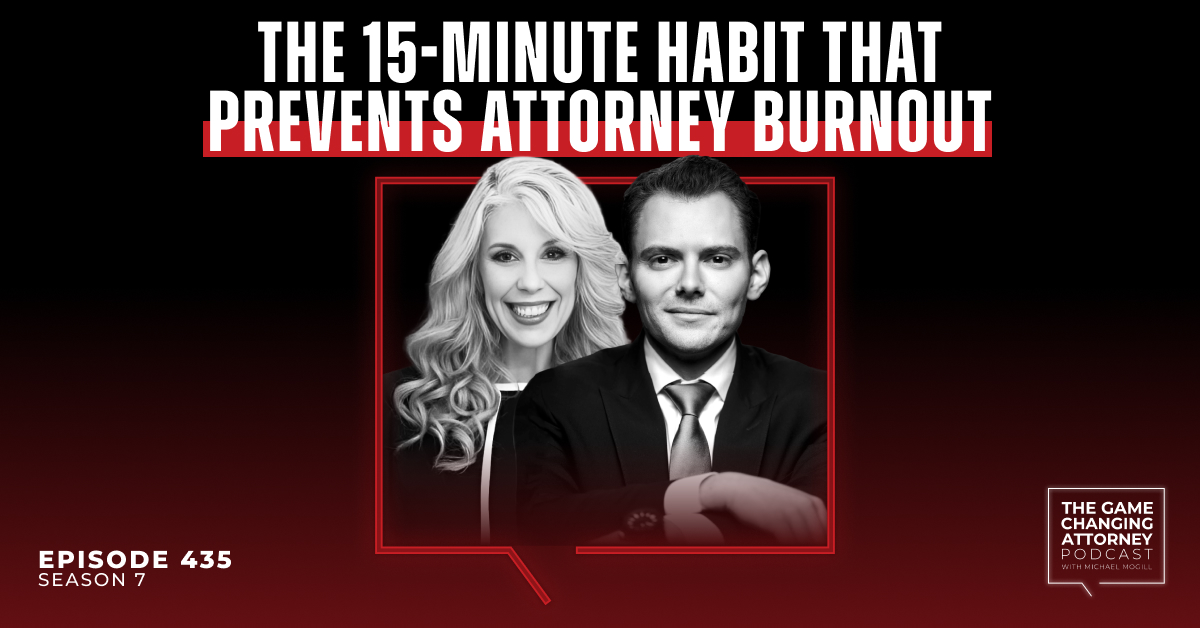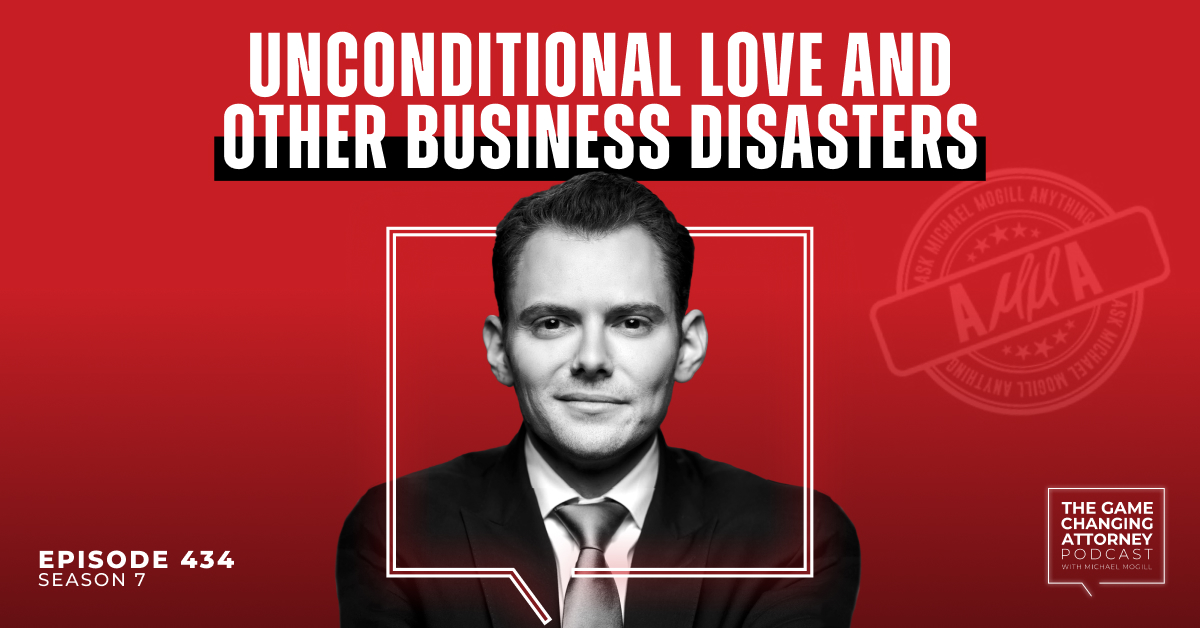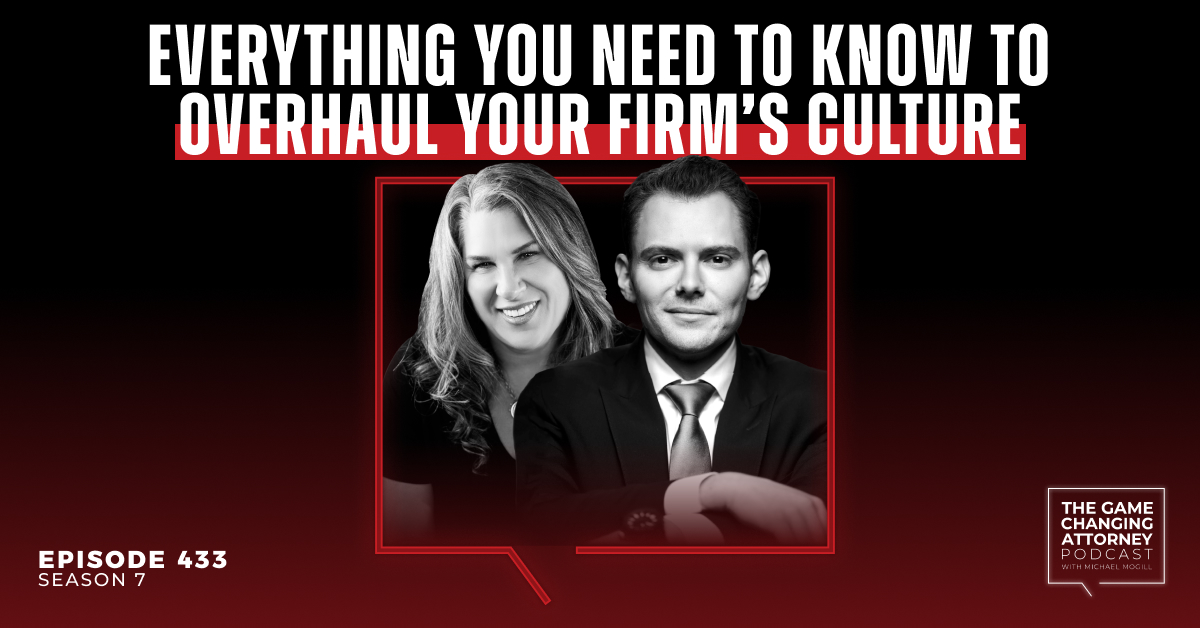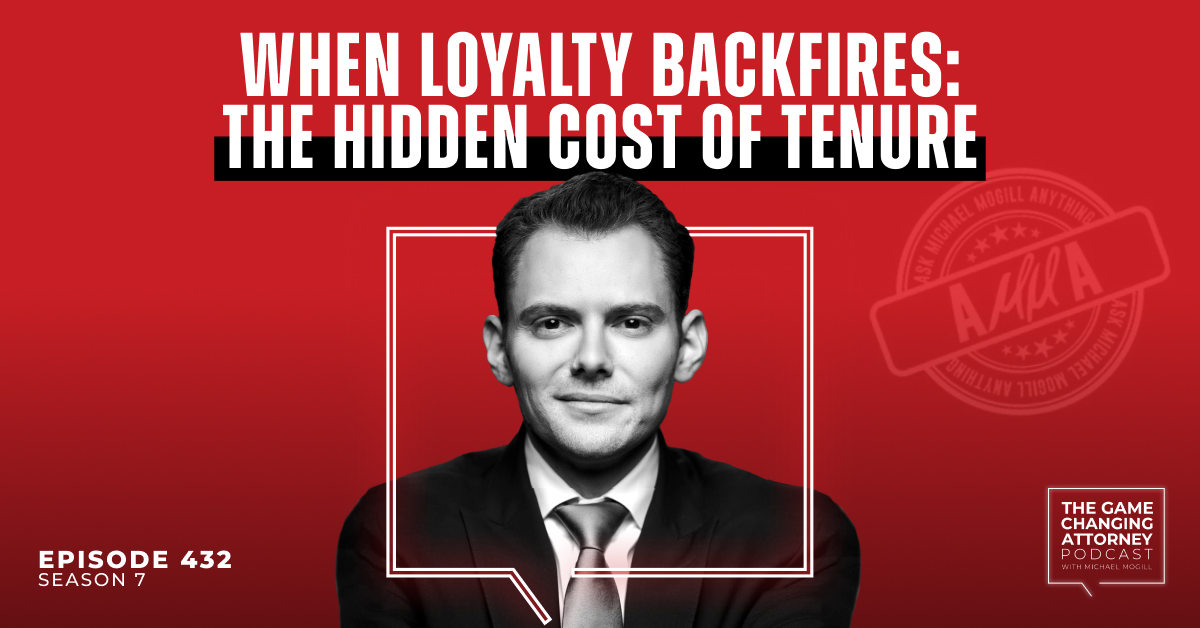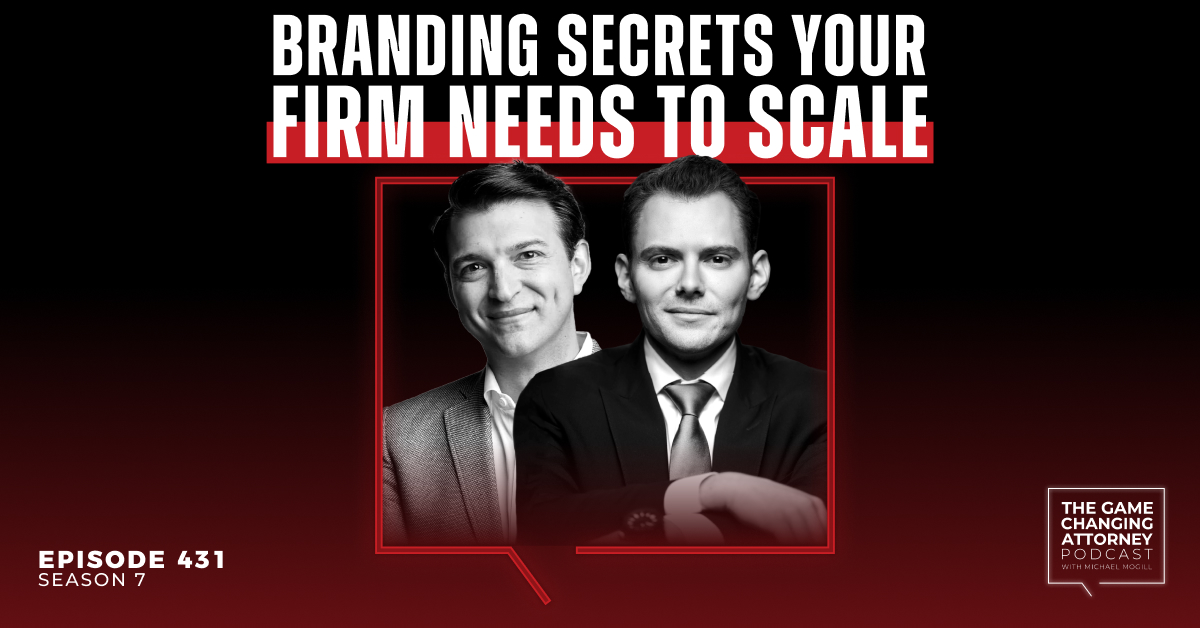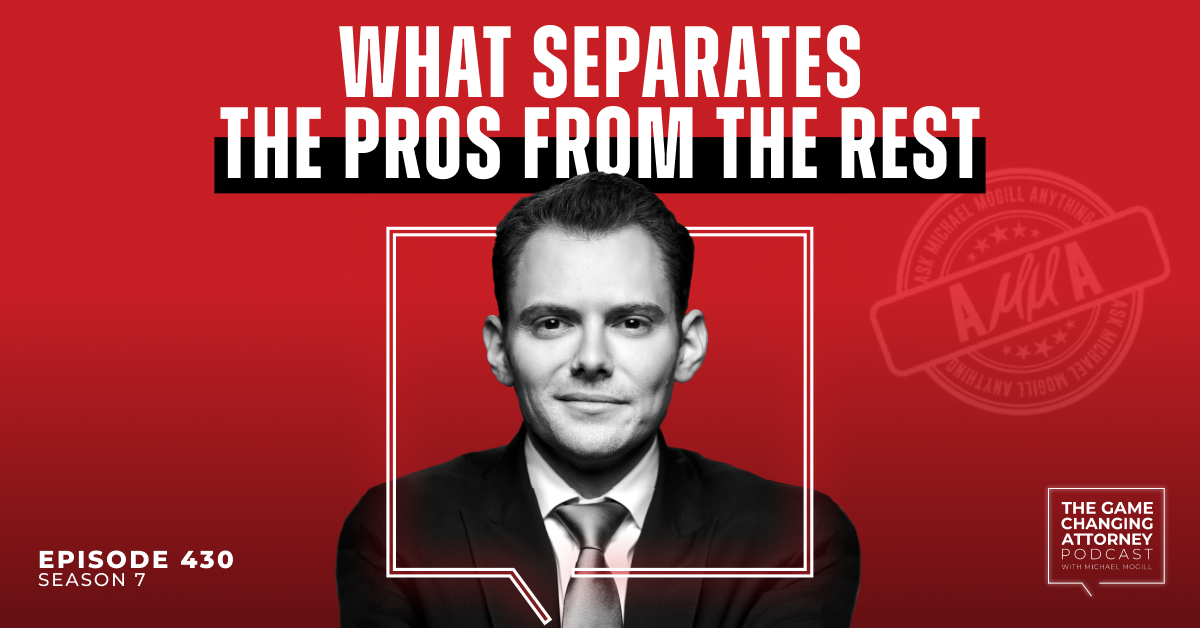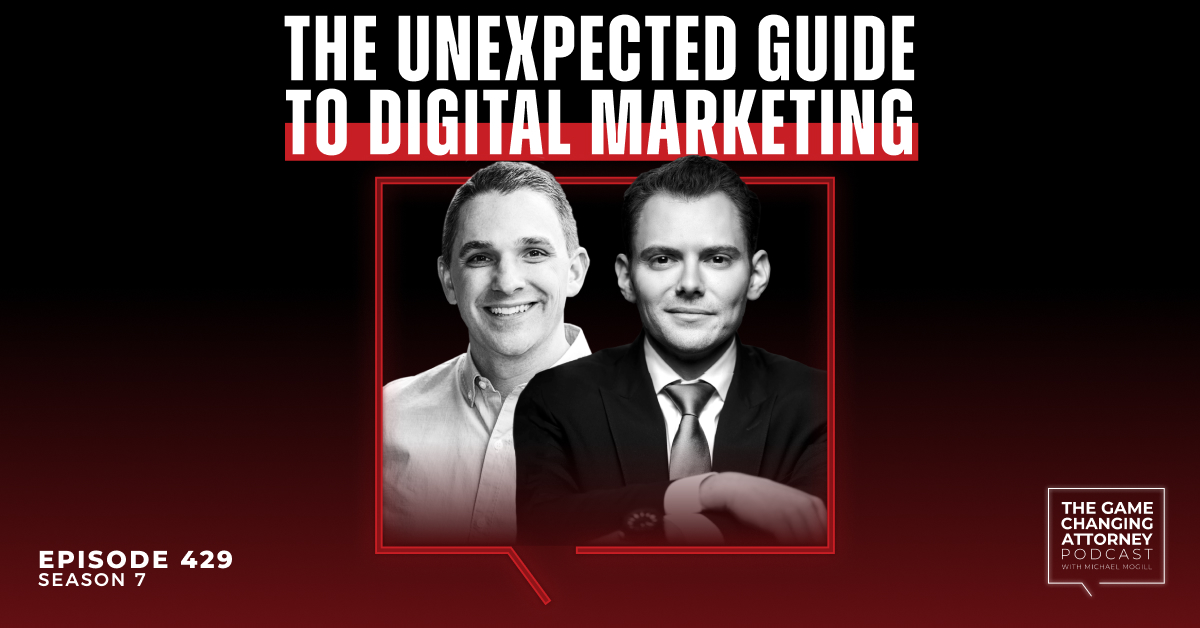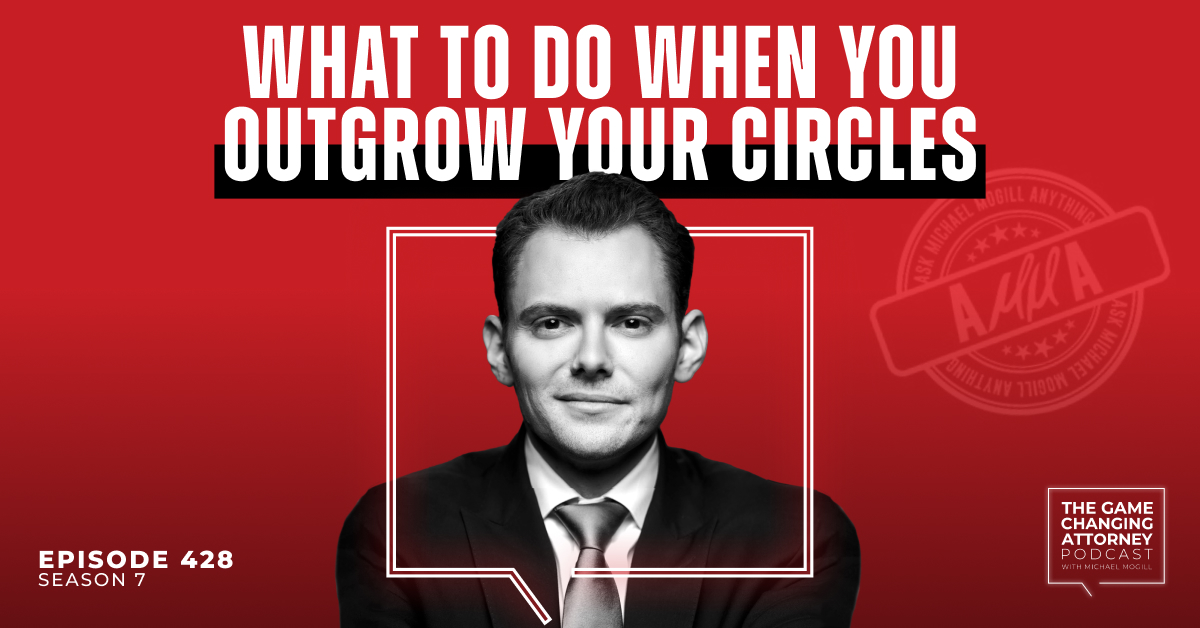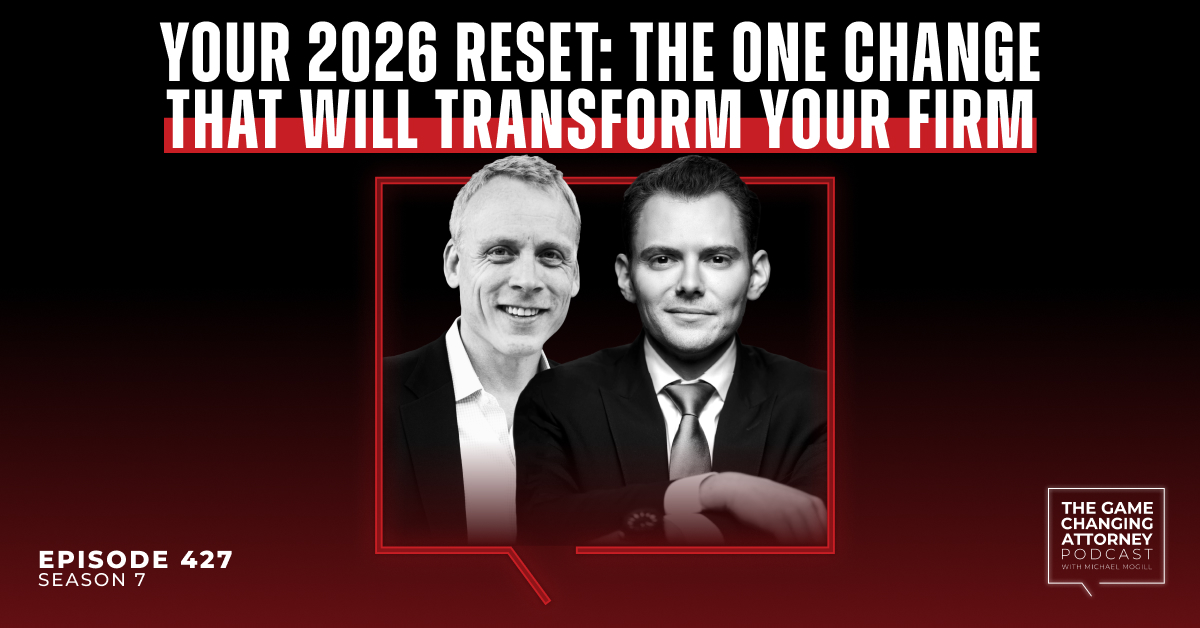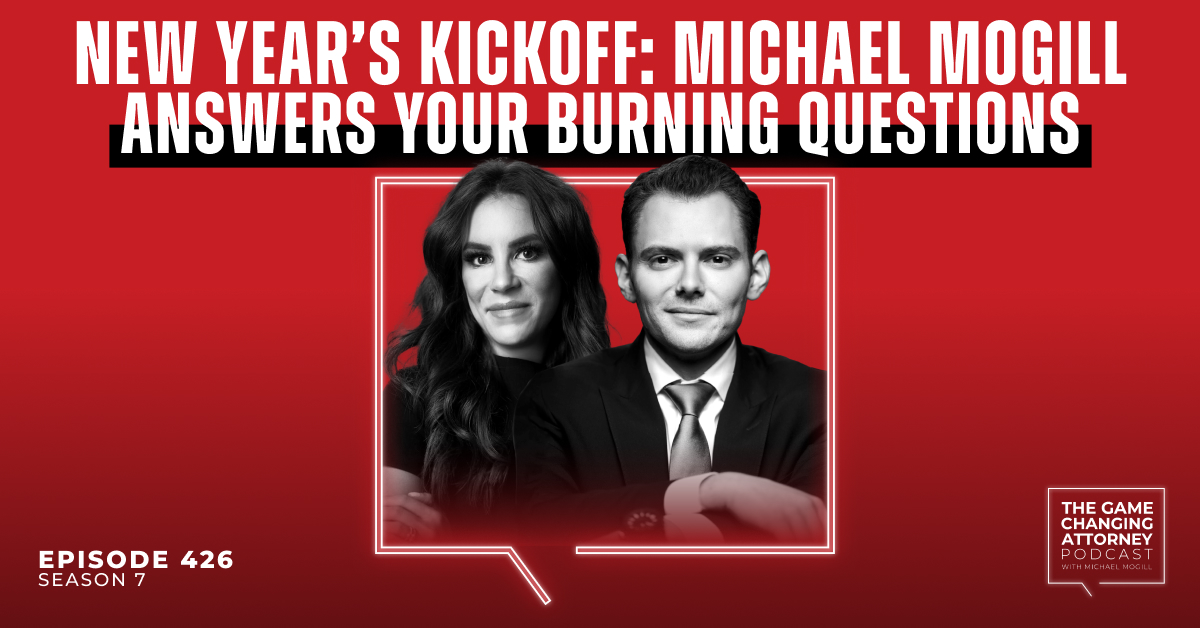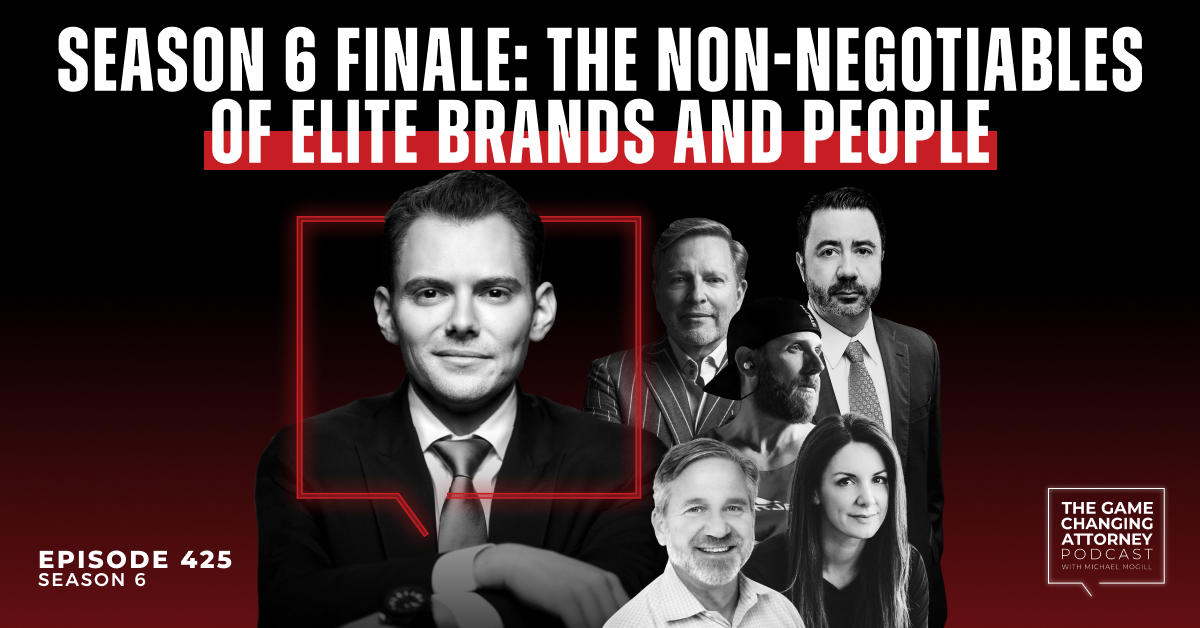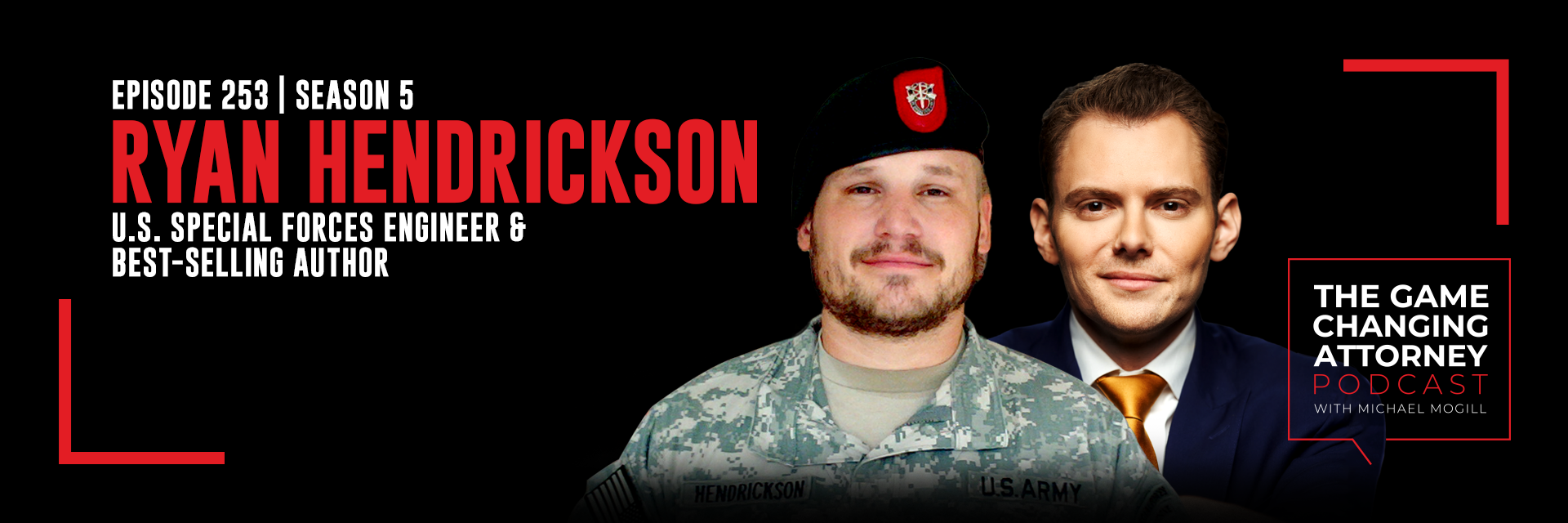
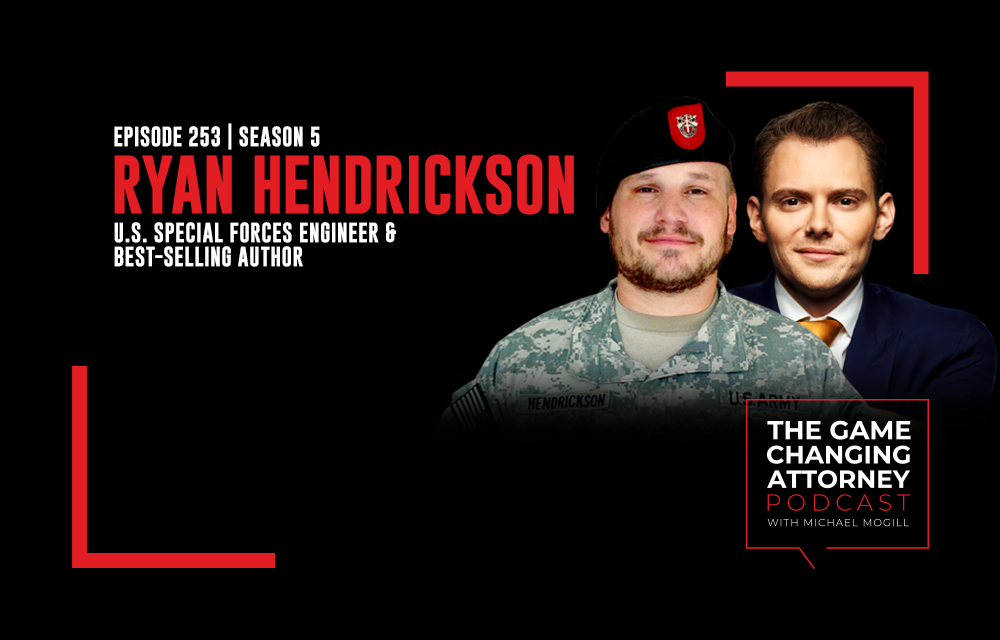
Episode 253 — Ryan Hendrickson — Tip of the Spear: The Incredible Story of an Injured Green Beret’s Return to Battle
In a world where quitting is often the easiest path, Ryan Hendrickson — U.S. Special Forces Engineer and best-selling author — stands out as a beacon of unwavering dedication. Despite the life-altering event of stepping on an improvised explosive device in Afghanistan which blew off his foot, Ryan’s commitment to duty led him back to the battlefield time and again.
Join us for an unforgettable episode of The Game Changing Attorney Podcast as Ryan delves into:
- Embracing a “we” mentality over a “me” mentality
- Discerning between giving your all and succumbing to quitting
- The stark reality of living on the edge in combat situations
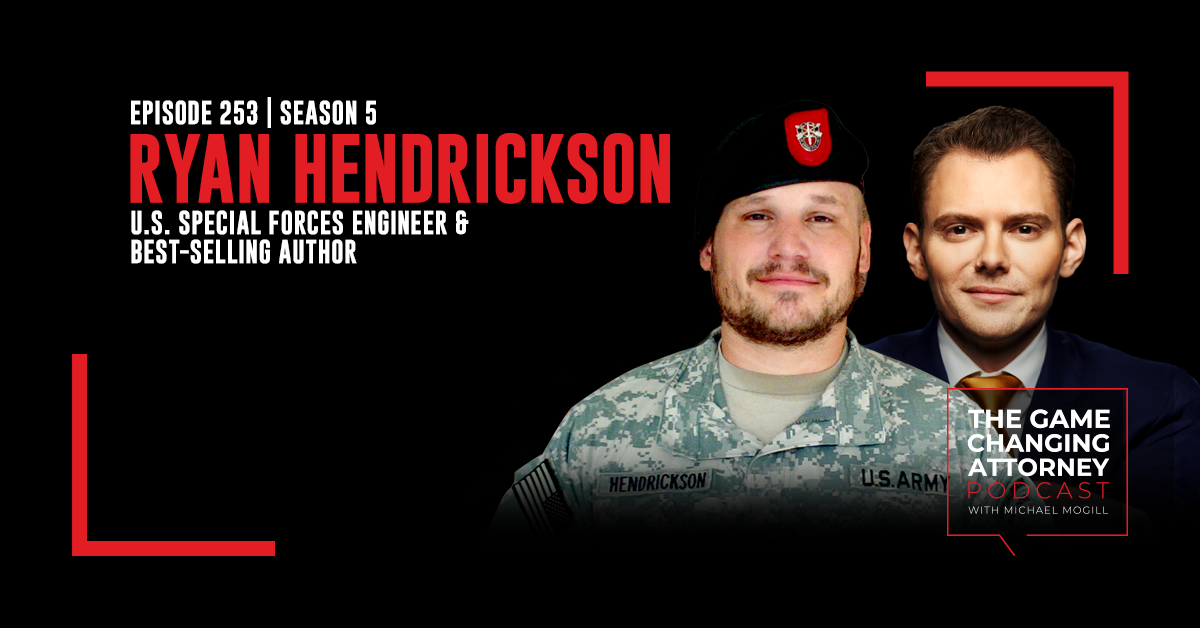
Listen & Subscribe
Show Notes:
The harsh truth. “Life’s not fair. The minute that you figure out that life isn’t fair is the moment you actually start to enjoy life. When you figure out that life can be very brutal, and you accept and understand it and know that nobody owes you anything and that you aren’t entitled to anything, that’s when you can enjoy it. It took me years to figure that out. Once I took the time to look back on my dad’s life and then my own, I realized it.”
The power of discipline. “If someone can give me a task, a condition, and a standard, I’m fine. If I have all three of those, you’re going to get the best version of Ryan Hendrickson. It comes from my background in the military. I thrive on having some sort of direction.”
Don’t give up. “The difference between quitting on yourself and not making the cut is this: If you gave it everything you possibly have, there’s nothing more to give, and you don’t make the cut, you can hold your head high knowing that you gave it all you possibly could. If you quit, that shows that you could have done more and kept going, but instead you decided you were finished.”
Green Beret impact. “The reason why being a Green Beret was so important to me was the human domain aspect of it. Anyone can pull a trigger. It’s very easy to kill somebody. Being able to think through your shots is a different story, however. You ask yourself, ‘If I end up pulling the trigger here, what is that going to do for X, Y, and Z?’ You end up working from a more humanized standpoint. You begin to worry about your actions creating negative outcomes for the people around you. Instead of treating enemies like animals, you treat them as what they are: human beings who deserve respect. By acting that way, gaining and building rapport is easier and better. Yes, there are bad guys who deserve to die, but there are so many innocent people who don’t.”
Team-focused. “Is it ‘me’ or ‘we?’ If it’s ‘we,’ then you’re going to be fine. But if it’s ‘me,’ you’re going to go away. When the bullets start flying and people start dying, the worst thing that could ever happen is not me dying — the worst thing that could happen is if one of those bullets hits my buddy and kills him because of something I did wrong. You can teach a monkey to do our jobs, but if you don’t have that ‘we’ mentality, you’re not going to make it.”
Own your journey. “I control what I can control. If it’s meant to happen, it will. I believe that the beginning of your life and the end of your life are already written and are set in stone. The pages in between are all blank, and I get to fill them out. So whether I die in Afghanistan or at home, there’s nothing I can do about it.”
An explosive awakening. “I stepped on an IED, it exploded, and I couldn’t figure out what the hell happened. It didn’t hurt, so I thought I was all good. I’m laying there unable to breathe because of a combination of the dust, the ammonia, and the explosion, and I knew I needed to get some fresh air or I would suffocate. But why couldn’t I move? I was pissed because I couldn’t get up, so I started calming myself down so I could think clearly. As the dust started to clear, I looked down and saw my boot at a 90 degree angle. I remember thinking, ‘Huh, how did that happen?’ I went to move my leg and the boot flipped over and I saw two pearly white things sticking out of my leg. I couldn’t get over how white they were. Then it hit me — and the pain did, too. It hurt so badly. It was funny though because I was able to psych myself out so much that it didn’t hurt at all, but the second I realized what had happened, the pain began.”
Confronting mortality. “It’s a very sobering moment in your life when you know you’re going to die. It’s hard to explain, but it’s this weird, emotional, regret-filled pain. All this shit just hits you and you think, ‘Damn.’ It was crazy, but I truly believed that I was going to die that day.”
Drive vs. stupidity. “You can drive so hard to the point that you hurt yourself even worse than you did when your whole situation began. It was dumb because I wasn’t giving myself the proper time to heal. I had world-class people working with me to help me get better. So while there is a thin line, stupidity still manages to get you to where you want to go somewhat — it just may not be good for you.”
Responsibility in combat. “There’s no special treatment in combat. It’s either you carry your load or you’re a liability — and the team better not find out that you can’t carry your load on a mission. If you can’t do it, don’t come. Men especially want to believe they can do anything, but when peoples’ lives are at risk, you need to do the right thing and step away. I learned a lot of that after I was blown up, but I still never became a liability.”
Adrenaline junkie. “I kept riding this combat-high. I went back to Afghanistan in 2017, 2018, and 2019 as a Green Beret, and then went back in 2020 as a Defense Contractor. I got home in 2021, and I’m still looking for that high. No drug will ever give you this kind of high, and that is that I survived. I want to experience that again, and again, and again. It’s dangerous and I’m not sure how it works, but it does.”
Chasing the rush. “You can never undo the past. It will always be there. What we don’t focus on enough is, ‘How do I adapt my life? How do I make myself better for this situation that I’m having a lot of issues to overcome right now?’ Unfortunately, many people turn to drinking, drugs, and other outlets that are temporary because of this problem.”
What does being a game changer mean to you? “Being a game changer revolves around the ‘we’ mentality. You can do great things in your life as you on your own — but to be a game changer, you must look at things you’ve done as a team.”
RESOURCES & REFERENCES
Green Berets
Navy SEALs
Joe Rogan
Purple Heart
Special Forces
Basic Underwater Demolition/SEALs (BUD/S)
Army Rangers
The Taliban
Improvised Explosive Device (IED)
Connect with Michael
- Text directly at 404-531-7691

